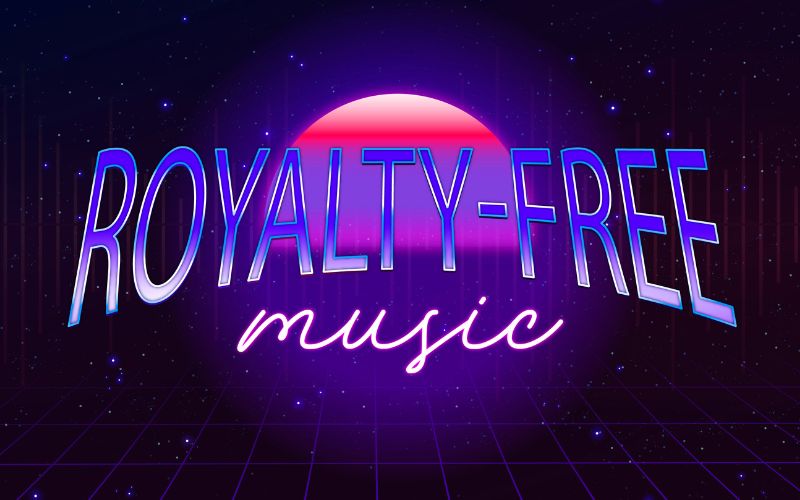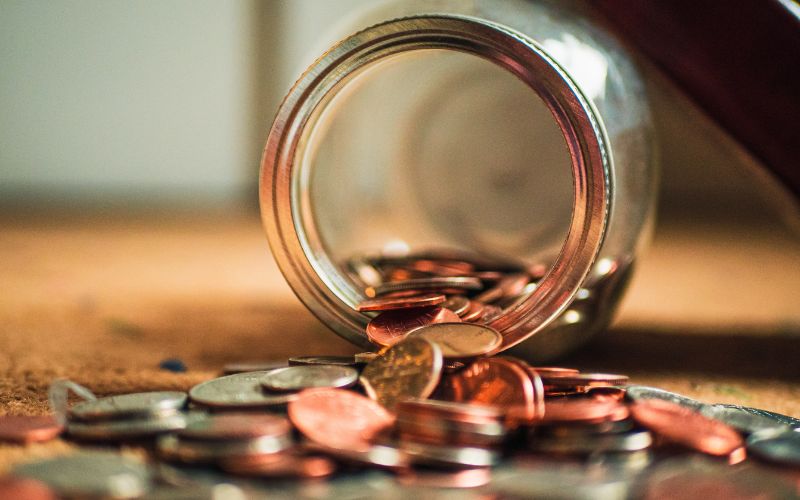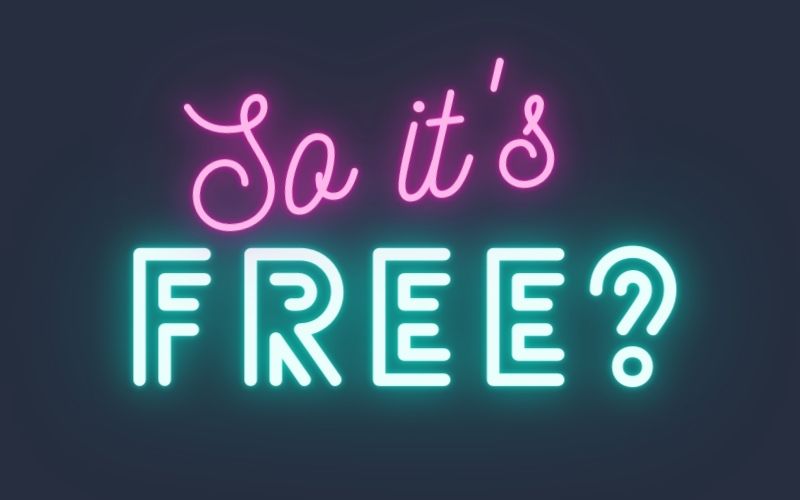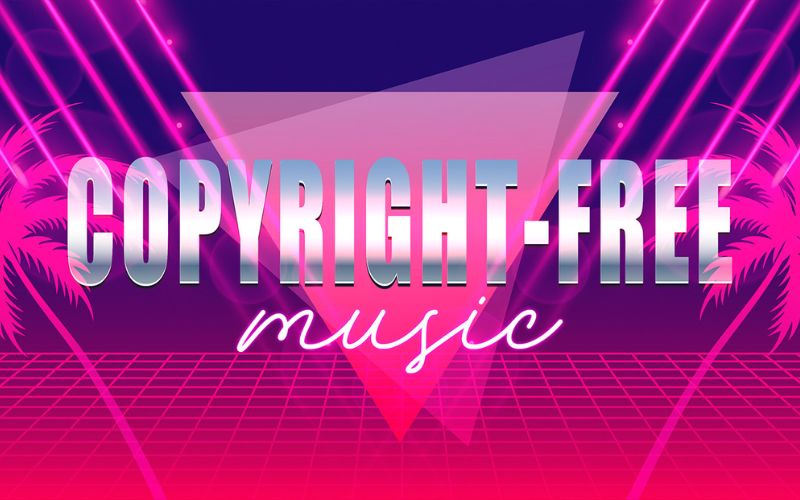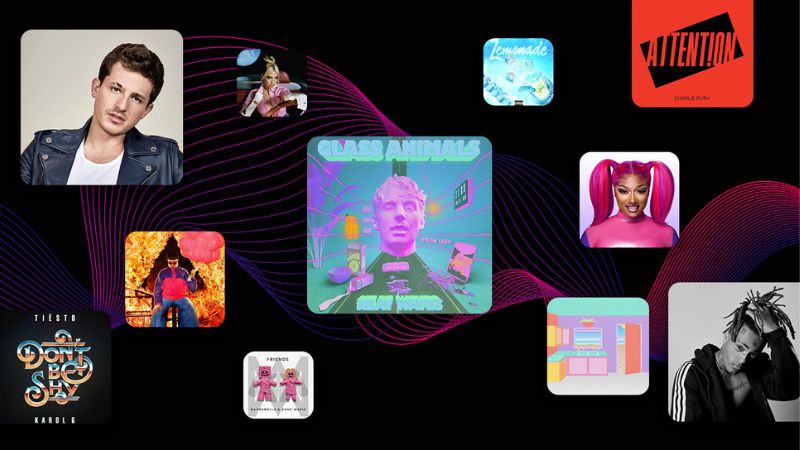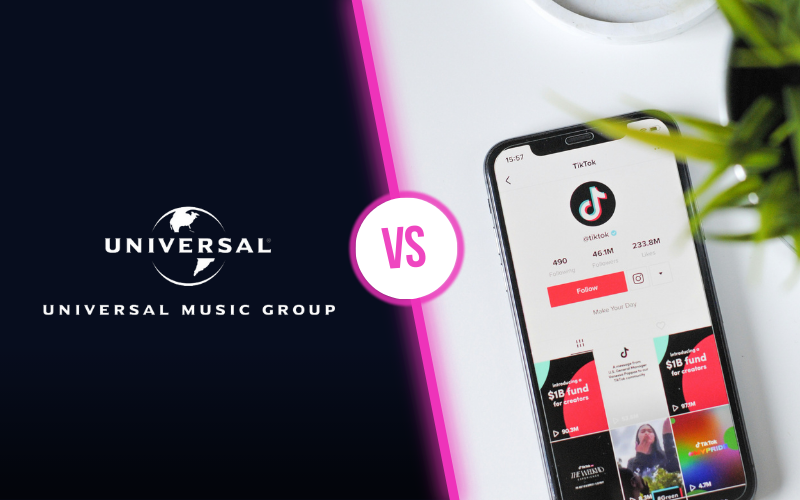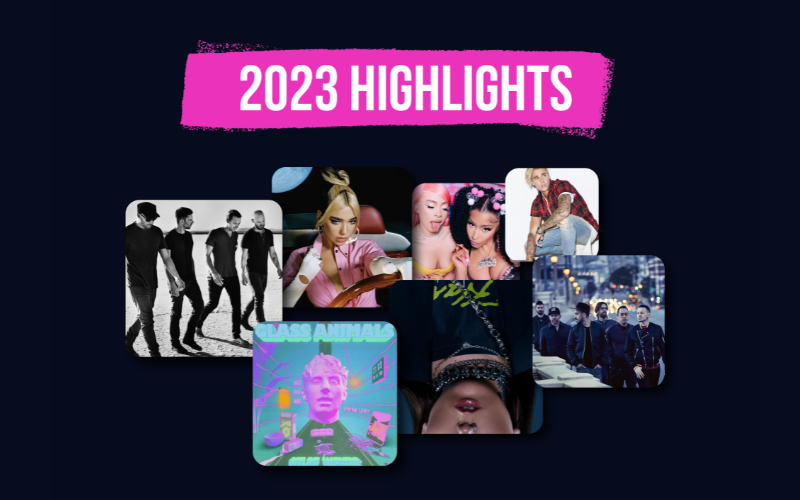If you’ve been making YouTube content for any amount of time, you’ve probably come across the term “royalty-free” when looking for music. If you’re wondering “what does royalty-free mean?”, don’t worry! We’re here to help you understand the term and why it’s kinda a big deal. We’ll help you understand the basics of royalty-free music, how you can get a royalty-free music license, how it differs from copyright-free music and what you can do with it to go claim free on YouTube.
So let’s get going, here’s everything you need to know about royalty-free music.
First things first – what’s a royalty?
You’ve probably already gotten your head around what copyright means in music and you probably know that when you use music in your videos, you’re only allowed to use music with permission. You probably also know that it can cost money to get that permission. What’s not as commonly known is that paying for permission to use a song on a video comes in two forms.
Number one is an upfront fee. You pay the owner of the song (or their representative) directly for permission to use the song in your video. That’s simple enough, but something else happens after the video is released. By law, money is owed to music Creators for broadcasts (or plays) of their tune as a part of videos, shows, or anything else they might be used in. This money is called “royalties”, and the rules around what royalties are owed when, and by who, can be tough to navigate.
What is royalty-free music?
For a YouTube Creator, keeping track of royalties can be nearly impossible, not to mention expensive, so sometimes music is offered on a “royalty-free” basis. This means the music creator has waived their rights to these “backend” royalties because they understand your plight and want to help!
That’s what “royalty-free” means, in a simplified nutshell.
The most important part to understand? “Royalty-free” does not necessarily mean “free”. You may still need to pay something upfront but after this initial fee, you may be free to use the song as you please without having to pay more fees.
What does royalty-free mean for music?
The best way to highlight what it actually means for music, is to show you what it means in a real-world example.
- Say you want to add one of the most popular songs for YouTube videos; SAD! – XXXTENTACION as the backing track to your upcoming video.
- If you purchase a royalty-free license for this track, you’ll pay the price you’re quoted a single time.
- It won’t matter whether you have 10 subscribers or 10,000,000, or how many platforms you want to use it on. Once you’ve paid that initial royalty fee, you won’t have to pay anything further.
What royalty-free music does not mean for music
While I’m sure this has you bursting full of ideas and ready to start creating, there are a few things you need to know about music royalties & copyright and what royalty-free doesn’t mean when it comes to music.
So, does royalty-free mean free?
No, royalty-free music isn’t free. It sounded too good to be true, didn’t it? Sadly royalty-free music isn’t free. It can be, but generally, you’re having to pay some kind of fee for the music.
Sure, in some instances people will offer you their music to use for free and that’ll still be royalty-free but generally, stock music for YouTube videos is not actually ‘free’. You’ll still have to pay for the right for that music to be free from royalties, usually with a one-time initial fee. Then, after you’ve done this the music will be royalty-free as you’ll not have to pay any further costs.
Royalty-free music isn’t stock music
Stock music simply refers to music that has already been created and is ready to use off the shelf, rather than music that’s been custom-made for your use. While many stock music libraries off their music royalty-free, either after an initial fee, as part of a subscription, or on some occasions, completely free, many will offer it on a model where you have to pay per usage or one that changes depending on your region.
Our own royalty-free music library (which is launching soon) uses stock music and you just have to pay a low subscription fee after getting it for free for 6-12 months. Make sure to sign up to be notified when this goes live and see if you’re able to get it for free!
Is royalty-free the same as copyright-free? Nope! Royalty-free is not copyright-free
Copyright-free music has a couple of distinct differences to royalty-free music. Music becomes copyright-free after the passage of time. This varies from country to country. In the United States, for instance, it’s 70 years after the last surviving writer passes away. This makes it very limiting. The other instance is when a writer completely passes up their rights to a piece of work, which again is very rare. There are a few ways to tell if a song is copyrighted.
Both of these instances are different to royalty-free though. Royalty-free music is still copyrighted, you just aren’t having to pay royalty fees on it.
Royalty-free isn’t necessarily cheap
The last thing to really hit home is that just because something is royalty-free, it doesn’t mean it’s going to come cheap. Royalty-free is simply a way of licensing music, and how the rights owners of that music choose to price the usage is down to them. This means you could pay just a handful of dollars or thousands, and there’s no real rule of thumb.
Claims free – even more important to YouTube Creators
You can probably see now why it’s important to understand what royalty-free means, at least on a basic level. But there’s something even more important for YouTube Creators to understand, and that’s what we at Lickd refer to as “claims-free”.
Claims free means that you won’t get stuck with a YouTube Content ID flag when you publish your video. That’s super important because you can’t monetize your video if it gets flagged by Content ID for using copyrighted material.
A song can become claims-free in a number of ways. One way is if it’s not copyrighted at all (say if it’s in the public domain) or if the song owner takes a song out of the Content ID system, it won’t trigger a Content ID tag.
But very few songs are in that category. You’ll find some claims-free music in the YouTube audio library, and that’s an ok option, but not always the best. So, what to do?
Lickd songs are “claims-free” because affordable licensing fees have already been negotiated directly with the music industry. When Creators upload a song they’ve downloaded from Lickd, the platform’s proprietary software – VOUCH – steps in to protect you from copyright claims triggered by Content ID. Lickd is here to help you find music for your YouTube videos without worrying about claims.
An important distinction – royalty-free vs. claims-free
As you can see, there’s a difference between a song being “royalty-free”, meaning you won’t owe money for ongoing use, and a song being “claims-free”, meaning you won’t have to worry about getting slapped with a Content ID copyright claim.
Ideally, you want both. The best way to do that is to use a music licensing platform like Lickd which will offer you an affordable upfront fee with no backend royalties and no copyright claims to worry about later.
Sometimes, companies handle the royalty-free part, but not the claims-free part, and that can be a huge hassle. Another thing to watch out for – sometimes a “royalty-free” library is a dumping ground for cheesy, generic music. So much so that the term “royalty-free” can be synonymous with “bad” – the best artists avoid “royalty-free” libraries.
Lickd is different. We make sure our music Creators are fairly compensated while still keeping fees affordable for you. We’ve gathered over 1 million tracks from real artists, with real careers, real fanbases, and real music for content creators, all pre-negotiated and ready for you to use in your next video. Royalty and claims-free. Sign up today to get 25% off and never worry about a Content ID claim again!
